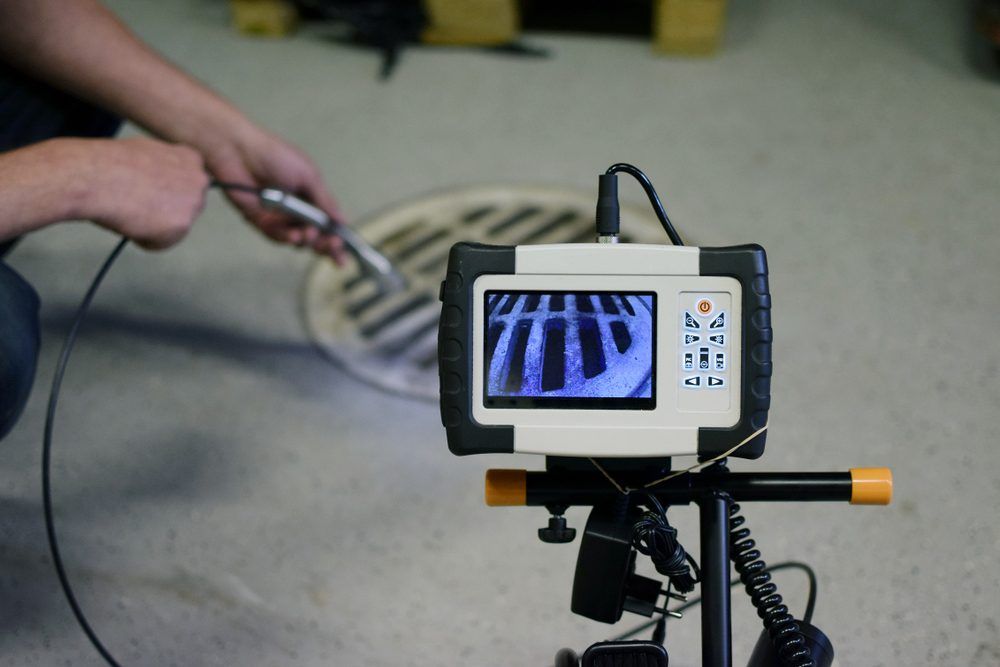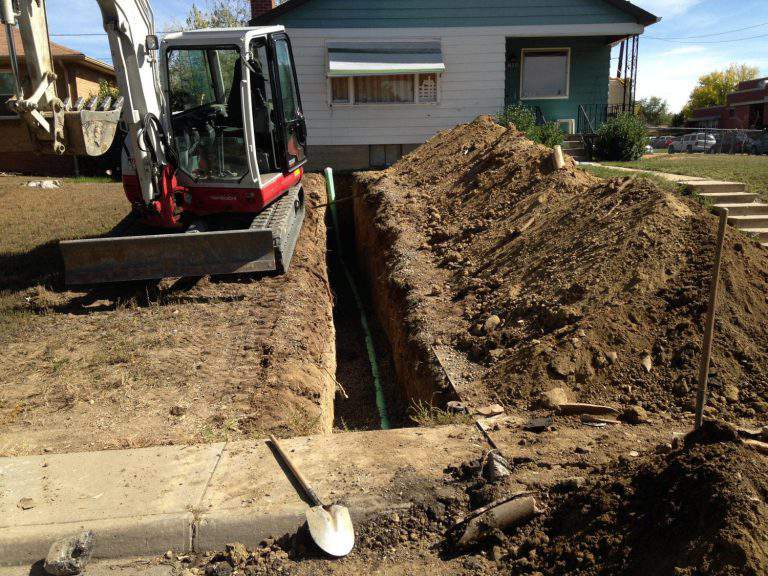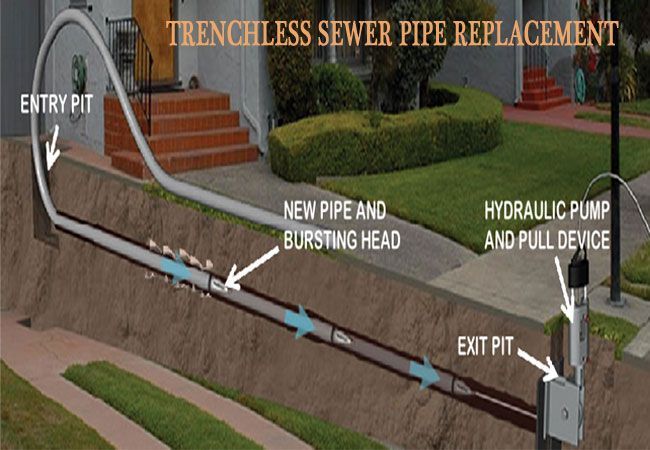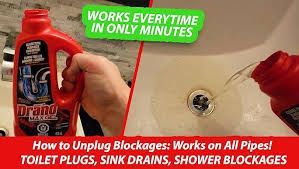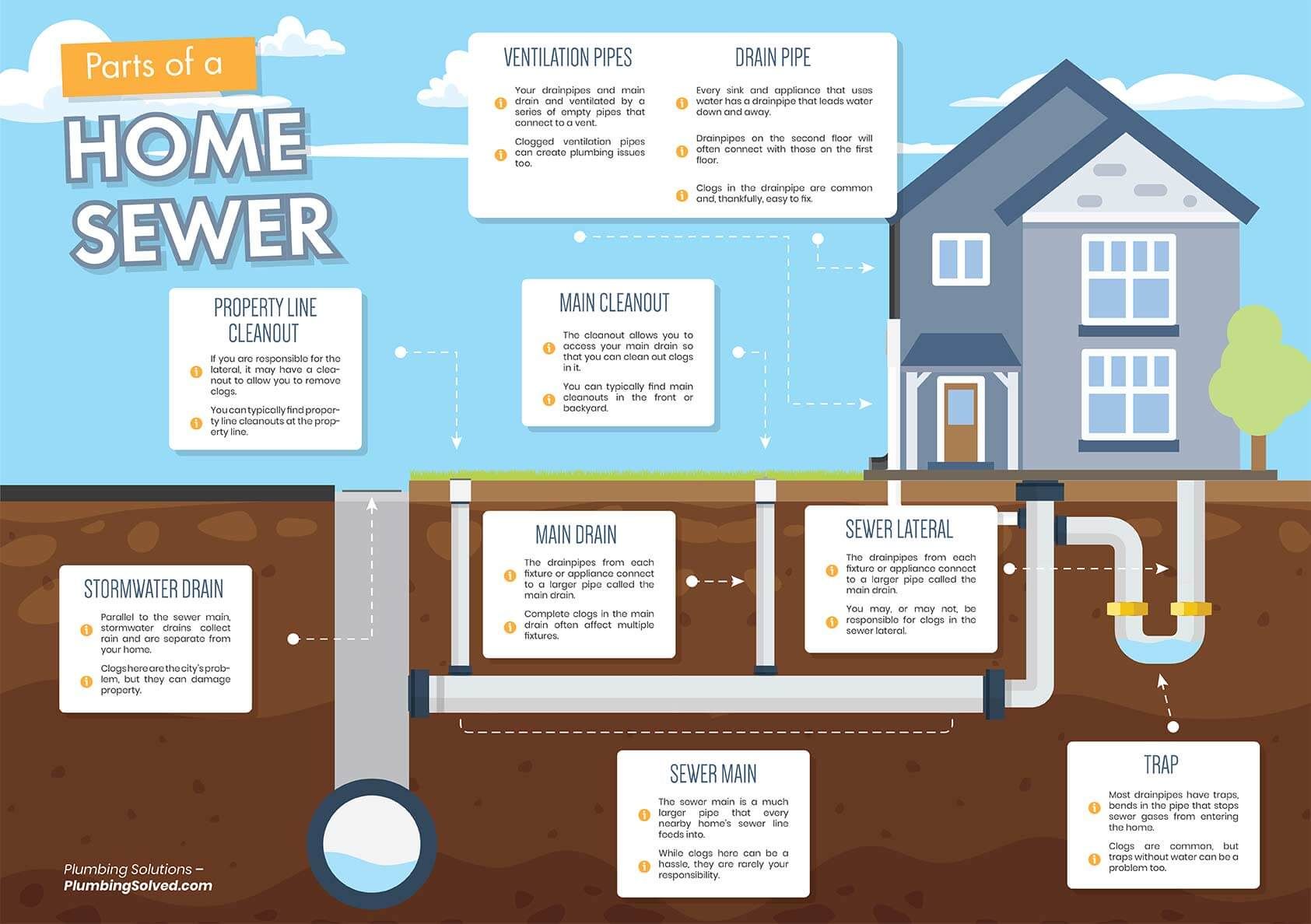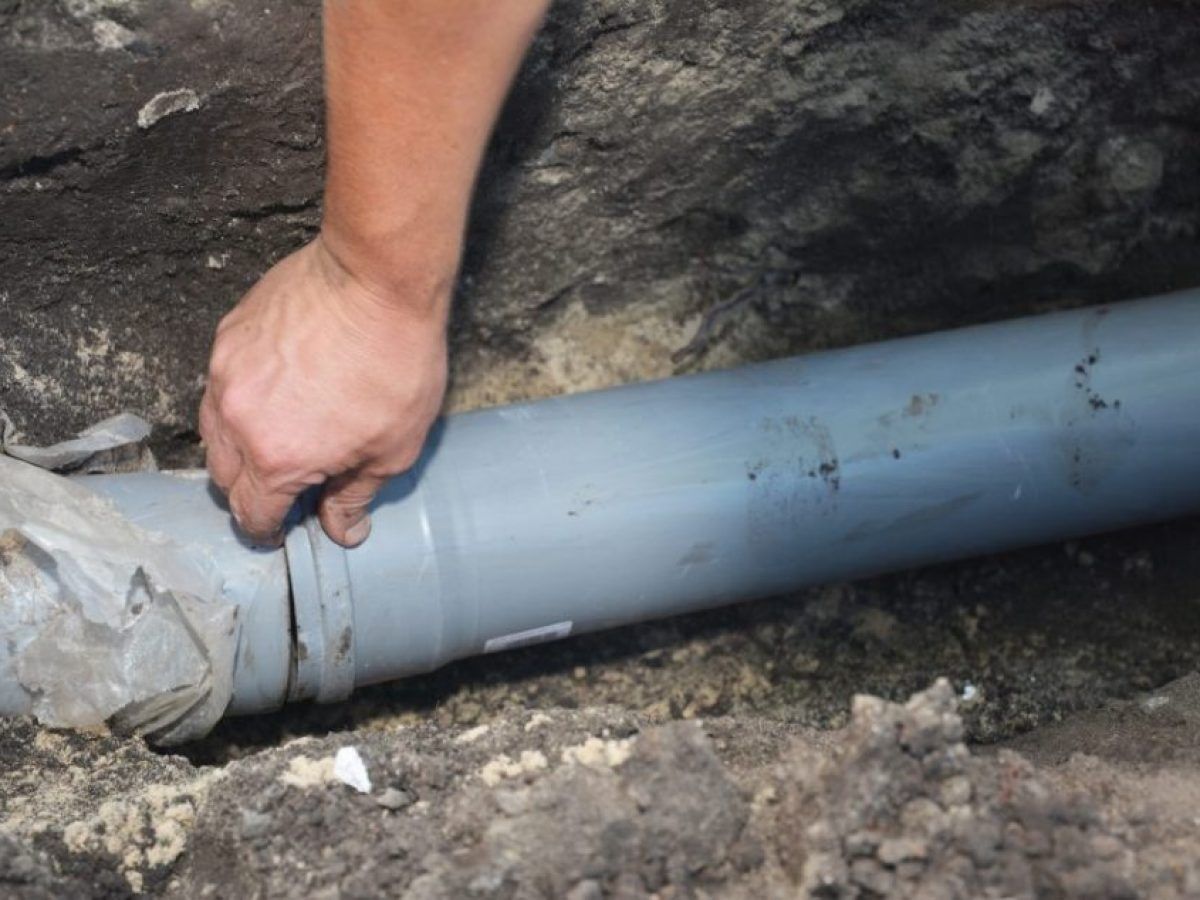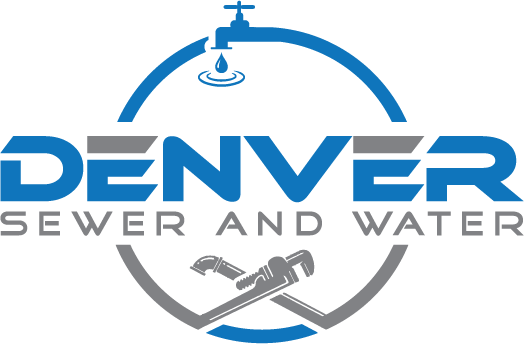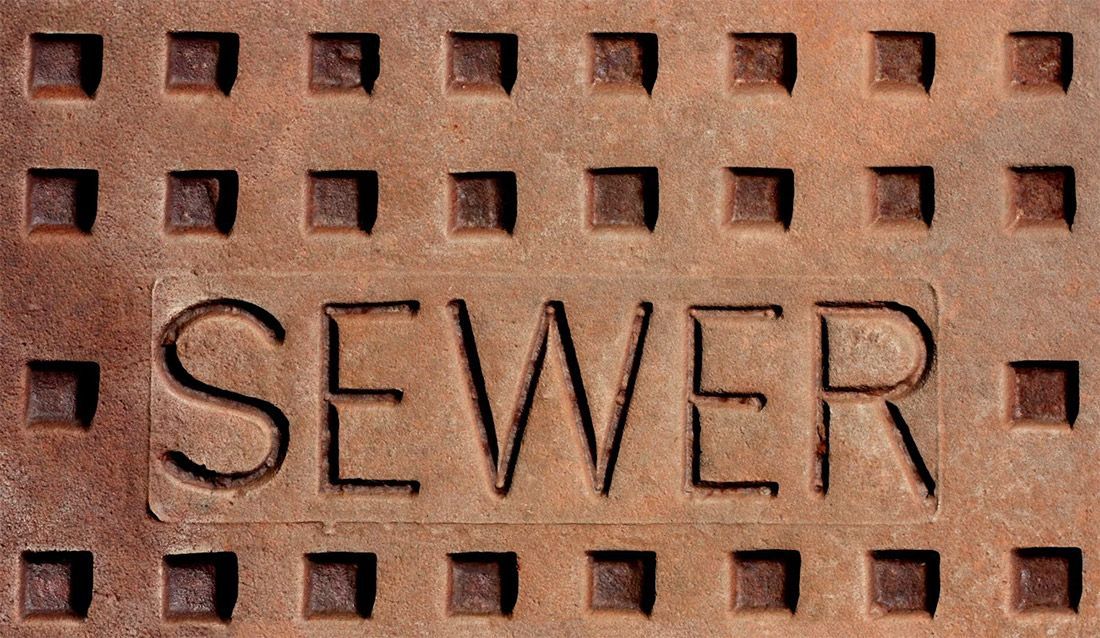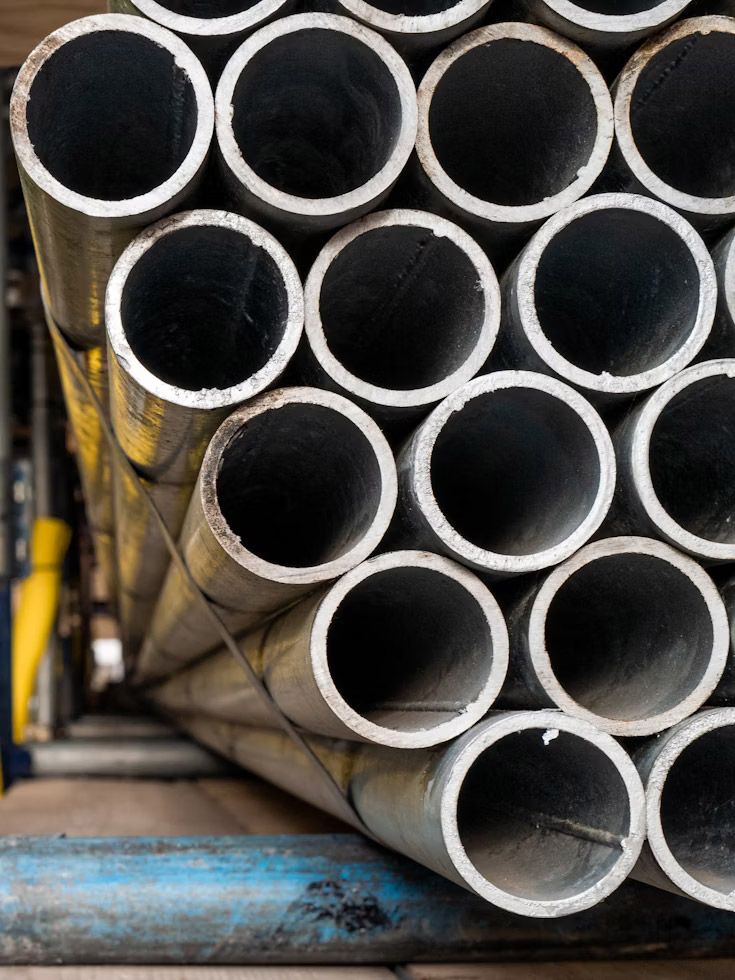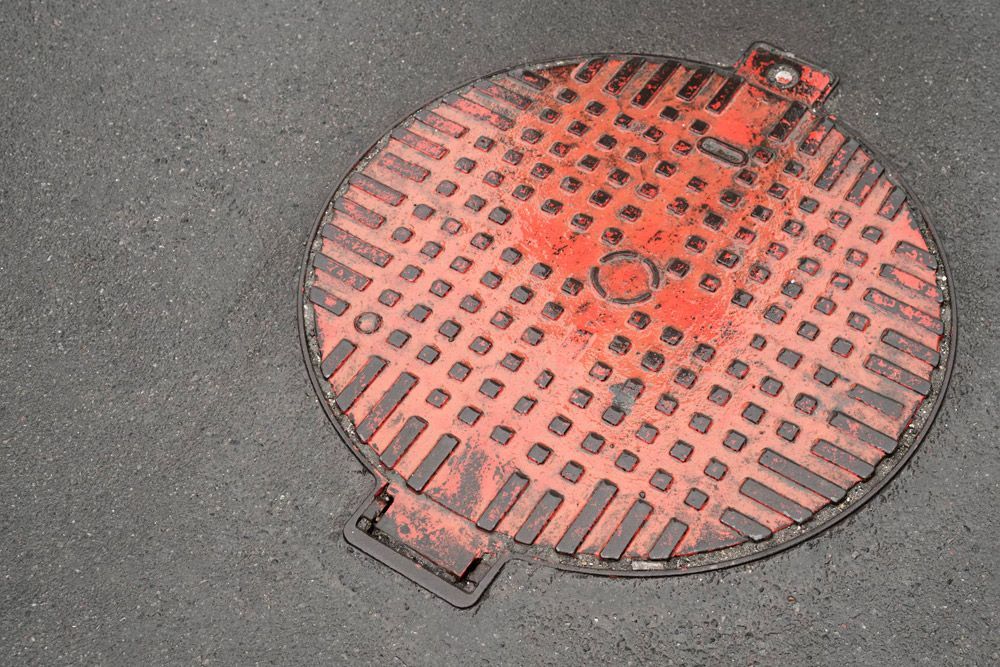How & Where to Find and Turn Off Your Homes Water Shut-Off Valve
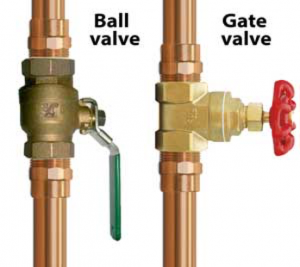
When it comes to maintaining your Denver home's plumbing system, one of the most important steps is knowing the location of your main water valves so you can quickly turn off and on the water supply when necessary. Having a basic understanding of how these valves work - and where they're located in or around your house - could be vital if you ever encounter a plumbing emergency that requires immediate action.
To help prepare yourself for such circumstances, we've crafted a guide that outlines everything, from identifying what type of valve you have to testing it to ensure it works properly.
Where is The Main Water Shut Off Valve
Knowing where the main water shut off valve is located in your Denver home is crucial in emergency situations. The shut off valve is typically found near the water meter or in a utility room where the main water line enters the house. It can also be found near the foundation wall or outside the house. It is important to locate and label the shut off valve to ensure that you can quickly turn off the water in case of a burst pipe or other plumbing emergency. If you are unsure of where your water shut off valve is located, contact a professional plumber to assist you in finding it. Being prepared and knowing how to turn off your Denver home's water supply can save you from potentially costly water damage and other related issues.
Ways to Quickly Find the Water Shut-Off Valve
If you ever experience sudden water leaks or flooding in your home, the first step to take is to locate the shut-off valve to cut off the water supply. The water shut-off valve is usually located in different areas around the house, depending on the type of plumbing system.
Here are some simple ways to locate your water shut-off valve, so you can prevent water damage and save your possessions.
Check the Basement or Crawl Space For Water Shut Off Valve
If your Denver house has a basement or crawl space, it's important that you locate the main shut-off valve. Water leaks can happen at any time, and having instant access to the valve can help prevent further damage to your home.
Usually, the valve is found right near the main supply that enters your home. It is also possible to find the valve handles, indicators, and markings that identify the valve as the main shut-off valve located on the wall near the foundation.
Depending on your home’s age, the location and the type of shut-off valve can vary. If your home is new, you may be fortunate enough to have a ball valve. A ball valve has a lever handle that needs to be turned 90 degrees to stop the flow of water. This type of valve is easy to operate and requires no special tools.
On the other hand, if your home is old, you may have a gate valve. A gate valve operates by turning a handle several times to increase or decrease the flow of water. Knowing the type of valve you have is essential, as a gate valve can take longer to operate during an emergency, which can lead to additional damage.
It’s a good idea to check that the valve is working correctly. Experts recommend operating the valve yearly to ensure it will function when needed. If the valve is hard to turn, corroded, or simply broken, get it fixed as soon as possible. It’s important not to force the valve, as this can lead to even more damage. In cases like these, it's best to turn off your home’s main supply and call a plumber as soon as possible.
Keeping your basement and crawl space clean and organized is crucial to ensure that you can access the water shut-off valve in an emergency. Be on the lookout for any signs of water damage and leaks, such as musty smells or mold. If you locate any damages or leakages, get them fixed as soon as possible to avoid significant damages down the road.
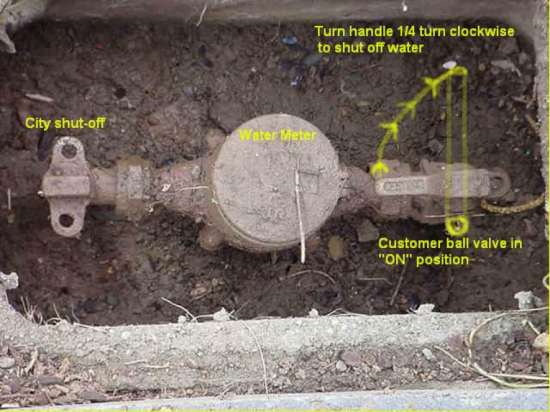
Outside Main Water Shut Off Valve
Outside Utility boxes are usually located outside Denver homes and contain meters that measure gas, electricity, and water usage. These boxes are typically close to the street and can usually be found near your driveway or sidewalk. To access your water shut-off valve, look for the protective cap that reads "water" or a valve handle that controls the water supply. If you cannot locate it, you may need to call a plumber for further assistance.
Once you've found your main shut-off valve, turning it off is easy. Simply turn the valve handle clockwise until it stops. This will stop water from flowing into your home. To turn the water back on, turn the valve counterclockwise until it is fully open. It's essential to turn off your home's main water supply if you're leaving town for an extended period or if you're going to do a plumbing project that demands turning off the water.
If you're running into a plumbing issue that only affects one area of your home, like a single faucet or toilet, you don't need to turn off your home's main water valve. Instead, use the shut-off valve for the affected area of your home.
For example, if you're experiencing a leaking faucet in the bathroom, you can turn off the valve located underneath your sink. This is why it's essential to know where your individual shut-off valves are located in case of smaller plumbing issues.
When operating any shut-off valve, whether it's your main valve or an individual valve, it's recommended that you do it slowly and with care. This is to avoid potential damage to your home's plumbing system. Furthermore, if you're unsure about whether or not you're turning the valve handle in the correct direction, it’s better to hire a plumber to help.
How To Find Water Shut Off Valve
When it comes to home maintenance, knowing where your water shut off valve is located is crucial in preventing potential disasters. The process of finding the shut off valve may seem daunting, but it is actually quite simple. First, check your home's exterior; the shut off valve may be located near your outdoor faucets or hose bibs. If you can't find it there, head to your basement or crawl space and look along the exterior walls. Another common location is near your water heater or furnace. If all else fails, check your home’s blueprints or call a professional plumber for help. Knowing how to find your water shut off valve can save you time, money, and plenty of headaches in the long run.
How To Replace Water Shut Off Valve
If you're experiencing a leak or need to repair a water line, it's important to know how to replace your water shut off valve. Denver Sewer & Water can guide you through the process and ensure that the job is done efficiently and effectively. Replacing your water shut off valve may seem intimidating, but our team of water line plumbers in Denver have the experience and knowledge to make it a stress-free process. We utilize the most up-to-date technology and techniques to ensure that the repair is long-lasting and reliable. Don't let a leak or broken water line cause further damage to your home or property - let Denver Sewer & Water handle your water shut off valve replacement needs.
How To Find Water Shut Off Valve Outside
It is vital to know the location of your water shut off valve outside of your home in case of an emergency situation. Firstly, you should locate your water meter, which is often near the curb in front of your property. The shut off valve is usually located near the meter, either above or below ground level. Occasionally, water shut off valves can be tucked away in an underground box or covered with dirt or leaves. Be sure to clear any debris to ensure you have access to the valve in case of an emergency. Once you locate the shut off valve, it is important to test it to ensure it is functioning properly. If you encounter difficulty locating the valve, consult with a professional plumber who can assist you with the process. Remember, knowing the location of your water shut off valve is an important safety measure that can prevent significant water damage and save you from costly repairs.
Follow the Main Water Line to find Main Water Shut Off Valve
As discussed earlier, the first thing you need to do is locate your main water shut-off valve. Typically, the valve is located in the basement, crawl space, or utility room. It is typically a wheel-shaped valve that can be turned to shut off the water supply. If you cannot locate it in any of these areas, you should try following the main water line.
This line usually runs from the street to your house and connects to the water meter. Check your property lines and look for a metal cover that gives access to the valve. The valve may be close to the water meter or buried underground. If you suspect that the valve is underground, look for any sign of a patchwork on your lawn, which indicates the location has been dug up previously.
Once you have located the valve, the next step is to turn it off. If the valve is a wheel shape, turn it clockwise until it stops. You may need to use a wrench or pliers to get a good grip. Some valves may also require you to lift a lever or pull a handle. Make sure to turn it off completely to avoid any water flow.
To turn the water supply back on, turn the valve counterclockwise until it is fully open. Make sure to do this slowly to avoid any water pressure surges that can damage your pipes or appliances. After turning on the valve, check all the faucets, hoses, and appliances in your home to ensure that water flows correctly.
If you will be away from your home for an extended period, it's always a good practice to turn off the main water supply. This will prevent any accidents, leaks, or water damage while you're away. You can also consider installing an automatic shut-off valve to monitor any water leaks and turn off the water supply automatically if there is an issue.
Water Main Shutoff Valve at Street
As a Denver homeowner or business owner, it is important to be aware of the location and function of the water main shutoff valve at street level. The water main shutoff valve is located between the water meter and the main water line, and it controls the flow of water to your property. In the event of a leak or emergency, shutting off the water main at the street level can prevent costly damage to your property and protect your water supply. It is essential to know where the valve is located and how to turn it off in case of an emergency. We suggest conducting regular maintenance checks to make sure the valve is in proper working condition. If you need assistance locating or identifying your water main shutoff valve, don't hesitate to contact a professional plumber at Denver Sewer & Water at 720-935-6221
How To Shut Off Main Water Valve
Knowing how to shut off the main water valve in your Denver home can prevent water damage during emergencies such as burst pipes. It's important to locate your main water valve and make sure it's easily accessible in case of an emergency. Typically, the valve is located near the water meter or where the main water supply enters your home. To shut off the valve, turn it clockwise until it stops. It's also a good idea to regularly test the valve to make sure it's functioning properly. In the event that you cannot locate the valve or it is not functioning, contact a professional plumber to assist you. Taking the time to familiarize yourself with your main water valve can save you time, money, and headaches in the long run.
City shut off valves are crucial for maintaining a smooth and efficient water distribution system. These valves are located throughout the city's water system and allow water companies to isolate specific sections of pipeline, shut down water flow during repairs and emergencies, and regulate water pressure to prevent bursting pipes. Without city shut off valves, any repairs or maintenance would require turning off water to entire sections of the city. Thanks to these vital pieces of infrastructure, water companies can maintain and upgrade the water distribution system without adversely affecting communities or businesses. Overall, city shut off valves are an essential component of the modern urban landscape, keeping our water flowing and our cities humming.
The Curb Water Shut Off Valve is a critical component of any property's plumbing system. It allows property owners to isolate the water supply to their property during an emergency or scheduled maintenance. Having the ability to quickly shut off the water supply can prevent extensive water damage, save valuable time, and reduce repair costs. As a professional plumbing company, Denver Sewer & Water highly recommends that property owners have a properly functioning Curb Water Shut Off Valve installed. It is the smart and reliable choice. Our experienced plumbing team can assist with installation, maintenance, and repairs to ensure maximum functionality and peace of mind.
As a Denver homeowner or a renter, it's essential to know the location of your water shut off valve. This valve controls the flow of water entering your Denver home, and knowing its location can save you from a costly plumbing disaster. In an emergency, such as a burst pipe or leaking plumbing fixture, shutting off the water quickly can prevent extensive water damage to your property. The valve will typically be located near where the water service enters your home, such as the basement, crawl space, or utility room. We highly recommend locating your water shut off valve and keeping it in mind for any future plumbing emergencies.
Hot Water Heater Shut Off Valve
In some Denver houses, the shut-off valve is located and installed next to the hot water heater. If you have a tankless water heater, the valve is located on the pipe that enters the appliance. For a standard hot water heater, you may find the valve on the top or bottom of the appliance. Check the valve to see if it cuts off the supply of water to your entire home.
Make sure that you can locate and turn off this valve in case of an emergency. You can use it to cut off the water supply to your entire house if you need to repair or replace plumbing fixtures or deal with a leak.
If there is a serious problem, such as a burst pipe, you will need to act quickly to minimize water damage and turn off the main water supply valve.
Once you find the main shut-off valve, it is best to test it out and make sure that it is functioning correctly. Turn off the valve, and then turn on a few faucets in your home to release any water that may be left in the pipes.
If the water stops flowing, then you have successfully shut off the water supply to your home. To turn the water supply back on, simply turn the valve handle in the opposite direction.
It is a good idea to make sure every member of your household knows where the main shut-off valve is located, how to replace it and how to turn it off and on. In addition, consider labeling the valve with a clear marker so that you or anyone else can easily locate it in an emergency.
Main Water Shut Off Valve Types
When it comes to the safety of your home, one of the most important things you can do is make sure that you have a reliable main water shut-off valve system in place. This system allows you to quickly and easily turn off your home's water supply in case of an emergency, such as a burst pipe or a major leak. But with so many different types of main water shut-off valves on the market, it can be difficult to know which one is right for you. Whether you opt for a ball valve, gate valve, or any other type of valve, it's essential that you choose a high-quality product that will work when you need it most. So if you're in the market for a new main water shut-off valve system, take the time to do your research and find the perfect product for your needs.
Types of Water Shut Off Valves
When it comes to managing your water supply, understanding the different types of water shut off valves is crucial. Whether it's in an emergency situation or routine maintenance, being able to identify and operate these valves can mean the difference between a minor repair and major water damage. From gate valves to ball valves and everything in between, each type of water shut off valve has its own unique characteristics and uses. By familiarizing yourself with these options, you can ensure that you choose the right valve for the job and maintain the safety and efficiency of your water system.
A Pex shut off valve is a crucial component of any plumbing system. Its purpose is to regulate the flow of water in and out of a pipe, allowing you to shut off water to specific areas for maintenance, repairs, or emergencies. Pex shut off valves are highly durable and long-lasting, and are designed to withstand high pressure without leaking or breaking. They are also easy to install and operate, making them an attractive option for homeowners and professional plumbers alike. If you're looking for a reliable and efficient valve for your plumbing system, consider a Pex shut off valve to protect your home and your family from water damage and leaks.
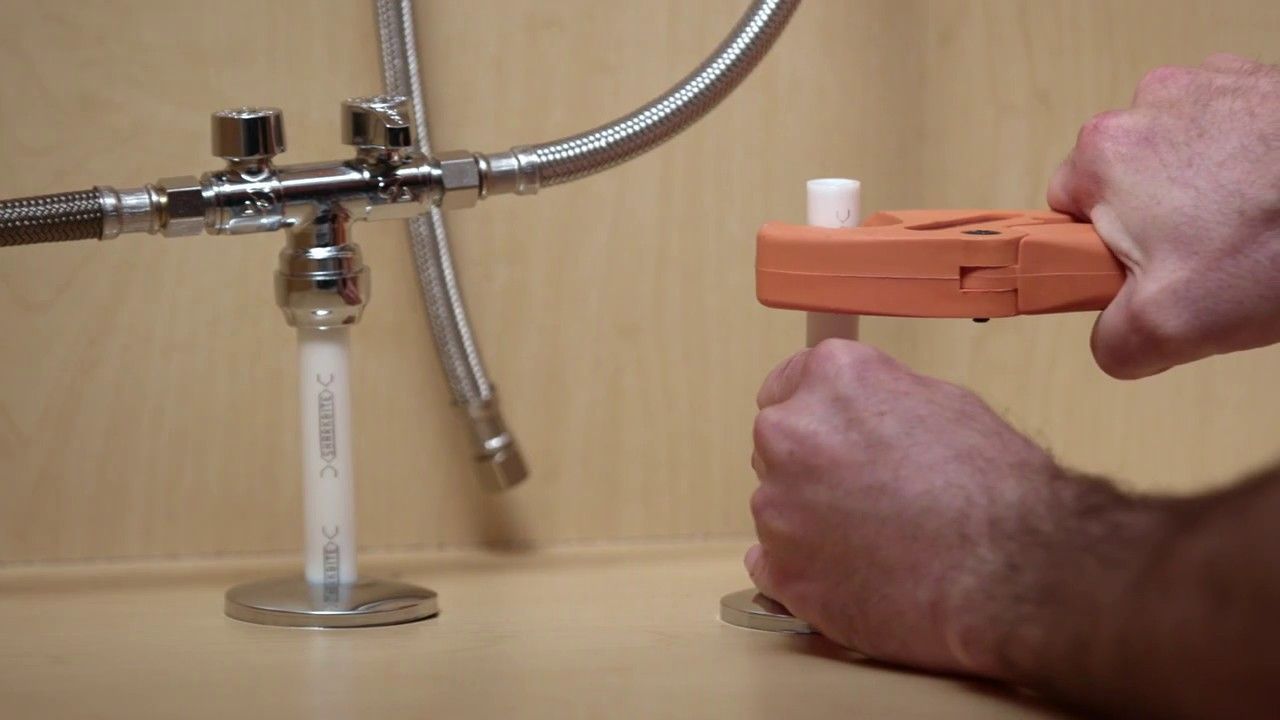
When it comes to plumbing solutions, there are a lot of options available. But for those who want a reliable and easy-to-install shut off valve, the SharkBite Shut Off Valve is a smart choice. This valve is made of durable materials and features a push-to-connect mechanism that requires no soldering, clamping, or glue. Whether you're a professional plumber or a DIY enthusiast, the SharkBite Shut Off Valve can save you time and hassle while providing a secure and leak-proof connection. Plus, its compact size makes it ideal for tight spaces where traditional valves may not fit. So, if you're looking for a quality valve that delivers on both performance and convenience, look no further than the SharkBite Shut Off Valve.
A Quarter Turn Shut off Valve is an essential component in any plumbing system. It is a type of valve that can be turned 90 degrees to completely stop the flow of water. This type of valve is incredibly convenient and easy to use, making it a popular choice for homeowners and contractors alike. With just a simple quarter turn, you can shut off water to a specific fixture or section of your plumbing system. This can be especially valuable in emergency situations, such as a burst pipe or major leak. If you are in the market for plumbing valves, be sure to consider the benefits of a Quarter Turn Shut off Valve for your home or business.
A ¼ turn Shut off Valve is an essential component in the field of plumbing. With the ability to shut off water flow with just a quarter turn, this valve provides a simple yet efficient solution for controlling water supply in homes and buildings. Its reliable and sturdy design ensures that it can last for years without any worry of leaks or damage. Made from high-quality materials, this valve is built to withstand harsh conditions and maintain its functionality. Whether you're a professional plumber or a DIY enthusiast, a ¼ turn Shut off Valve is a must-have in your toolkit. With its ease of use and durability, this valve is a game-changer in the world of plumbing.
When it comes to controlling the flow of water, a reliable shut off valve is key. The 3/4 Turn Shut off Valve is a dependable option for homeowners and contractors alike. With just a quick and easy 3/4 turn of the handle, water can be fully turned on or off, making maintenance or repairs a breeze. This high-performance valve is designed to withstand even the toughest conditions and is built to last, ensuring your plumbing system is in good hands. Don't settle for anything less than the best – opt for the 3/4 Turn Shut off Valve for all your plumbing needs.
A Sink Shut Off Valve is a crucial component of any plumbing system. This valve allows users to turn off water supply to the sink and prevent leaks or bursts in the pipes. It is also an essential tool when performing maintenance or repairs on the sink. Without a Sink Shut Off Valve, you would have to turn off the water supply to the entire house, which is not only inconvenient but also time-consuming. It is important to ensure that the valve is functioning correctly and not leaking. If you notice any issues with the Sink Shut Off Valve, it is best to have it serviced immediately by a Denver plumber, Denver sewer & Water to avoid costly repairs in the long run.
As a professional in the plumbing industry, one product that I highly recommend homeowners invest in is an under sink shut off valve. This handy tool allows individuals to turn off the water supply to a specific sink without having to shut off the entire water line. Not only does this save time and hassle, but it also saves water and money in the long run. Whether you're facing a leaky faucet or need to make repairs to your sink, an under sink shut off valve provides peace of mind and control over your plumbing system. Don't overlook this simple yet crucial addition to your home's plumbing setup.
Ice Maker Water Line Shut Off Valve
Ice Maker Water Line Shut Off Valves are essential components of any ice maker system. A properly functioning shut off valve allows you to control the flow of water to the ice maker, providing you with the ability to start or stop ice production at will. Shut off valves are also important for preventing leaks, which can cause significant damage to floors and other surrounding surfaces. In the event of a water leak, shutting off the water line can prevent a minor issue from turning into a major problem. Whether you are installing a new ice maker or looking to upgrade an existing system, it is important to ensure that your shut off valves are functioning correctly so that you can enjoy a reliable and worry-free ice-making experience.
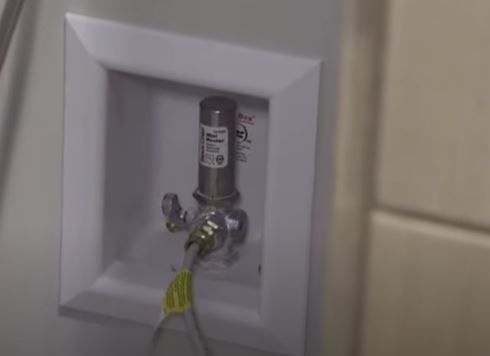
Refrigerator Water Line Shut Off Valve
A refrigerator is a necessary appliance in any modern kitchen, providing both convenience and efficiency in keeping food fresh and cool. However, one aspect that is often overlooked is the importance of a shut off valve for the water line that connects to the refrigerator. A Refrigerator Water Line Shut Off Valve serves the vital purpose of regulating the flow of water to the fridge, ensuring that it operates at its optimum level. This valve also comes in handy in case of emergencies, such as leaks or repairs. By installing a high-quality shut off valve for your refrigerator water line, you can achieve peace of mind and enjoy the uninterrupted functionality of your appliance for years to come.
The dishwasher shut off valve is a crucial component of any kitchen plumbing system. It allows you to conveniently control the flow of water to your dishwasher, preventing leaks, overflow, and other potential water damage. A reliable shut off valve is something every homeowner should have set up to ensure the proper functioning of their dishwasher. In order to install a shut off valve, it is recommended to work with a professional plumber who can ensure proper installation and avoid any potential damage to the plumbing system. With the right dishwasher shut off valve, you can enjoy a functional and safe kitchen without any unexpected plumbing emergencies.
Shower Head Shut Off Valve
A shower head shut off valve is an incredibly useful tool for those looking to save water and reduce their water bills. By installing a shut off valve, you can easily turn off the flow of water from the showerhead when shampooing, shaving, or performing any other task that doesn't require a continuous flow of water. This simple addition to your shower setup can lead to a significant decrease in water usage without sacrificing the quality of your shower experience. It's an investment that pays for itself over time and is easy to install, making it a practical choice for anyone looking to conserve water and save money without compromising their daily hygiene routine.
The Toilet Water Shut Off Valve is an essential component of any bathroom. It allows you to easily turn off the flow of water to your toilet, making it easier to perform repairs or maintenance. Whether you're a DIY enthusiast or a professional plumber, having this valve is a must-have. Not only is it a time-saver, but it can also help prevent potential water damage to your home. If you've been experiencing a toilet leak or need to replace a damaged valve, consider installing a Toilet Water Shut Off Valve. With a reliable and efficient shut off valve, you can maintain your plumbing and improve the functionality of your bathroom
Washing Machine Shut Off Valve
The washing machine shut off valve is an essential component in every home that has a washing machine. It acts as a safeguard against flooding caused by a faulty washing machine or a burst hose. In the event of an emergency, the valve is designed to quickly shut off the water supply to the washing machine, preventing further damage to your home. This critical piece of equipment is relatively easy to install and is a long-term investment in the protection of your home. It is highly recommended that all homeowners consider installing a washing machine shut off valve to ensure that they are prepared for any unforeseen emergencies that may arise. Trust in the reliability and durability of this simple yet effective solution for the safety of your home.
A garden hose shut off valve is an essential tool for any home gardener or landscaper. It is a simple device that is designed to regulate the flow of water through your garden hose. This valve can help you save water and protect your plants from over-watering. In addition, a garden hose shut off valve can also help you conserve water by allowing you to turn off the water supply to your hose when not in use. By doing so, you can avoid wasting water by keeping the hose running when not in use. With the right garden hose shut off valve, you can create a sustainable and cost-effective irrigation system that will keep your plants thriving for years to come.
A Sprinkler Shut Off Valve is an essential component of any fire protection system. This valve serves as a control mechanism that allows firefighters to shut off the water supply to sections of the sprinkler system, which can help to contain and extinguish fires. When the valve is activated, it sends a signal to the fire alarm control panel, which immediately alerts the fire department, helping to mitigate damage and protect lives. Proper maintenance of the valve is crucial to ensure that it is working efficiently in the event of an emergency. Regular check-ups and repairs by trained professionals can help to ensure that the valve remains operational and ready to prevent the spread of fires. Therefore, it is highly recommended to seek guidance from experts to maintain this critical component of your fire protection system.
The water meter shut off valve is a crucial component for any residential or commercial water system. This valve allows property owners to quickly and easily shut off the water supply in the event of an emergency or repair. Without this valve, the process of shutting off water to your property can be time-consuming and complicated, leading to potential water damage in the meantime. A properly functioning water meter shut off valve also ensures that you are only paying for the water that you are using, as it can accurately measure your water consumption. Overall, the importance of this valve cannot be overstated, and it is essential for every property owner to ensure that their water meter shut off valve is in good working condition.
A compression shut off valve is an essential component of any plumbing system. It serves as a reliable safety measure, preventing water leaks and other potential damages that may occur. These valves work by securely clamping the pipe to prevent the flow of water. They also provide a convenient and easy way to turn off water supply to specific areas while performing maintenance or repairs. When it comes to choosing the right compression shut off valve for your system, it is crucial to consider the intended use and type of pipe being used. Doing so will ensure optimal functionality and long-lasting durability of the valve. Trust in the reliability and performance of a compression shut off valve for your plumbing system today.
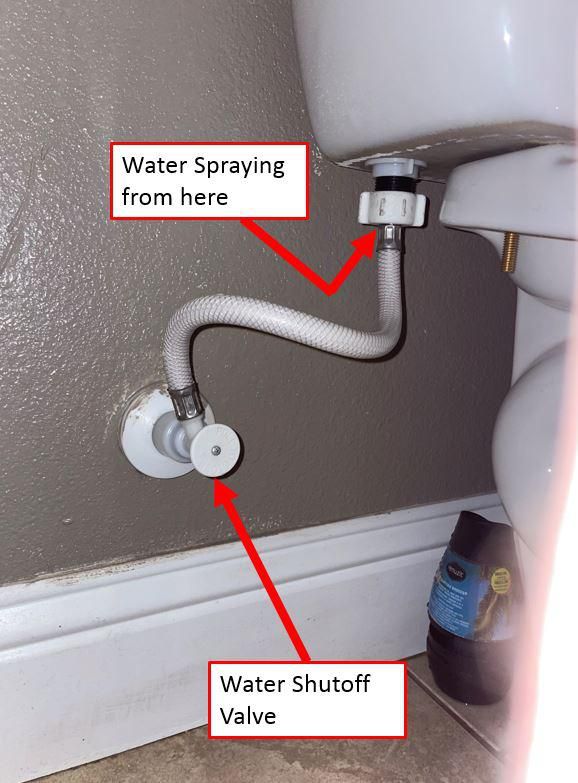
How To Replace Toilet Shut-off Valve
Replacing a toilet shut-off valve may seem like a daunting task, but with the right tools and some basic knowledge, it can be done quickly and easily.
● Before getting started, turn off the water supply to your toilet and flush it to empty the tank.
● Use a wrench to disconnect the supply line from the old valve and unscrew the valve using pliers.
● Install the new valve by tightening it into the threaded fitting and re-connecting the supply line. Turn the water supply back on and test for leaks.
Voila! Your toilet is now equipped with a fully functional shut-off valve. Don't be intimidated by plumbing tasks. With a bit of patience and some DIY-savvy, you'll be able to tackle any household repair.
Call Denver Sewer & Water
It's crucial to know the location of your shut-off valve to avoid potential water damage in case of leaks or burst pipes. You won't have to wait for a plumber or the water company to arrive before you act. The shut-off valve is usually located in the basement, garage, or outside your home. Depending on your home's age, the valve could be a wheel or a lever.
1. If you own a newer house, you're lucky! Most new homes have labeled shut-off valves with markings like "Main" or "Water Shut Off." But, if you live in an older home, you may need to do some exploration to locate your valve. Usually, the water valve is found in the basement or close to the water heater. So, it's worth taking some time to look around.
2. If you can't seem to locate your shut-off valve after looking around the typical areas mentioned above, it's time to call your water company. They should be able to provide you with guidance on how to find it and, in some cases, how to replace shut-off valve. The water company might have a map of your home's plumbing system, allowing them to locate the valve's position.
3. It's essential to understand that finding your shut-off valve is not just limited to emergencies. You may need to shut off the water supply during routine maintenance tasks such as replacing showerheads and faucets. It's better to know its location ahead of time to prevent running into unnecessary trouble.
4. If you still can't locate the valve or the water company was unable to help, don't panic. A plumber can come to your property and trace the water line back to the source to locate the valve. They can also install new valves or replace the water shut-off valve, saving you from any potential damage down the line.
Summing it Up, Water shut Off Valves
The significance of knowing where your home’s main shut-off valve is cannot be understated. Having the ability to turn the water off quickly in an emergency situation is an essential safety and security measure. Thankfully, locating and turning on or off these shut-off valves is easy to do with a little bit of research.
Taking the time to find, turn off and on your home's main shut-off valves can save you a lot of stress and money in the long run. Being knowledgeable about where your valves are located and how to operate them can help you prevent costly water damage emergencies. If you find that you are having trouble locating and operating your valves, it is best to call a professional plumber for advice.
Don't wait until an emergency occurs before finding out this significant information. Educate yourself today and make sure that you are prepared should a situation arise where it will be necessary for you to use these shut-off valves.
By taking the time to locate and learn how to use these valves correctly now, you will be protecting yourself, your family, your property, and your wallet from the potential damages caused by an ignored shut-off valve situation.
At Denver Sewer & Water, we recognize that your time is valuable, which is why we’re happy to negotiate a time that works for you, and our master plumbers always show up on time. Our courteous and respectful master plumbers strive to minimize the impact of leaky & broken pipes by helping you locate your Denver homes water turn off valves.
Denver Sewer & Water is a fully licensed and insured sewer & water line replacement service provider in Denver, CO, offering quality workmanship and ensuring your safety and peace of mind. We guarantee you’ll be satisfied with our trenchless pipe replacement services, which is why we’re pleased to offer a 5-year transferable warranty on all of our work call 720-935-6221. When you need a Denver plumbing company that gets the job done right the first time, so you don’t have to
hassle with ongoing issues and expenses, the experts at Denver Sewer & Water are the best choice for trenchless sewer replacement in Denver.
Whether you need partial drain repairs, trenchless sewer line replacement, repair, or full excavation, Denver Sewer & Water finds solutions for stopping big sewage and drainage problems before they start. Our service includes a complete examination. Call-720-935-6221
